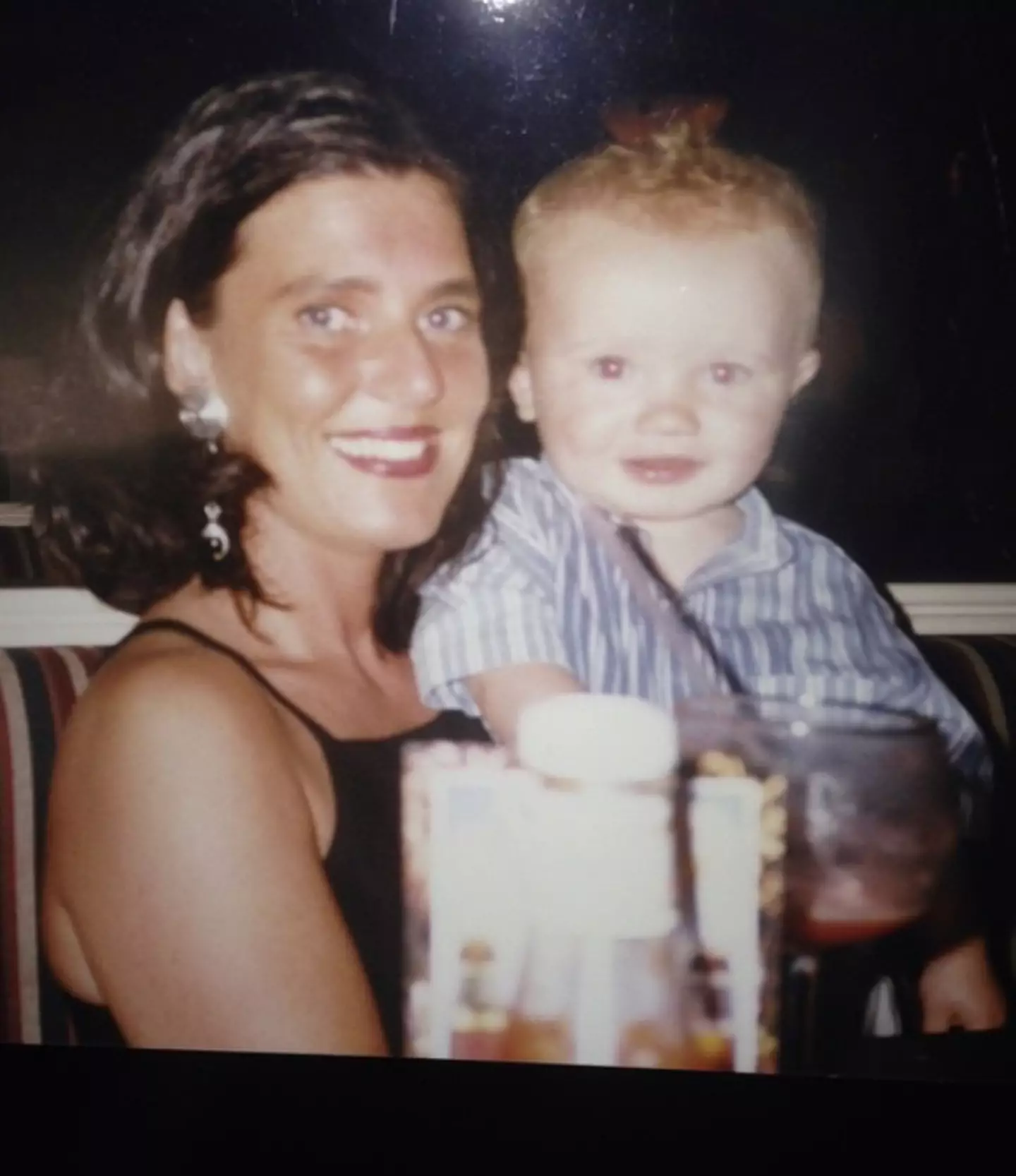
A man has revealed that he carries a rare faulty gene he got from his late mum that puts him at risk of developing dementia in his early 40s.
Jordan Adams, a marathon runner from Redditch, was just 15 when his mum Geraldine was diagnosed with frontotemporal dementia.
The average life expectancy from this uncommon type of dementia ranges from seven to 13 years after the start of symptoms, which include speech difficulties, personality changes and a lack of mental abilities.
"She was only 47. What it did to her was unforgivable," he told Alzheimer's Research UK.
"Dementia steadily stripped her of everything that made her who she was.
Advert
"From her sense of humour to her dignity, from the loss of her speech and other motor skills. And she slept for 20-plus hours a day before finally being permanently bed-bound.

"That was such a young age to have to deal with losing my mum in such a horrible way.
"And I know it’s what’s coming for me.
"My situation is rare – only one percent cases of dementia are caused by inherited fault genes. But dementia is all too common, every three minutes someone develops dementia, and – if nothing changes – they will have the same fate."
Advert

In a new interview with Good Morning Britain, Adams said he and his partner decided to terminate one of her pregnancies after discovering the embryo carried the faulty gene.
"Me and my partner found out that she was pregnant. But because obviously we want to make the informed choice that we don't want it to be passed on to our children," he explained.
"We unfortunately went through a stage of genetic testing for the child and found out that they were a carrier of the gene.
"So we had to, unfortunately, terminate that pregnancy because we didn't want that child to have to go through what we did in our childhood."
Advert

"I know not everybody would agree with that, but that's a choice that we made," Adams added.
"But we are hopeful that through pre Implantation Genetic Diagnosis, which is a form of IVF, where they can actually test the fertilised eggs that we produce to know whether that foetus is a carrier of the faulty gene or not.
"And hopefully, I mean, it gives us a 30 percent chance of taking a healthy, happy baby home.
"So you know, the odds are against us, but there is hope that we can start a family of our own and they won't have to go through what we have to go through."
Advert
If this story has affected you, call the Alzheimer's Society Dementia Connect Support line on 0333 150 3456 Monday to Wednesday 9am – 8pm, Thursday and Friday: 9am – 5pm and Saturday and Sunday: 10am – 4pm. Or visit their website here